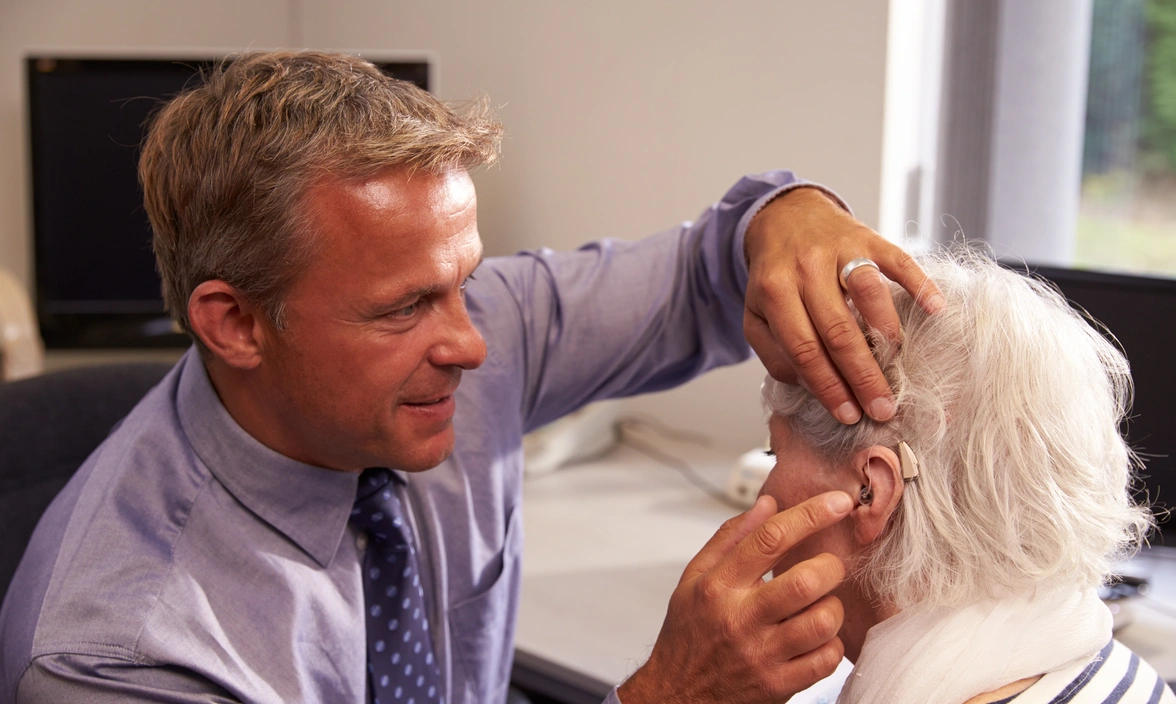Accessing hearing devices
When it comes to choosing a hearing aid in the UK, people with hearing loss have the option of pursuing care through the NHS or a private audiology provider.
When it comes to choosing a hearing aid in the UK, people with hearing loss have the option of pursuing care through the NHS or a private audiology provider.

It is a personal choice and there are advantages to both approaches. Whichever route you prefer to take, you should expect to have your hearing assessed. If hearing aids are required, you should be able to get whatever device is going to work best for you.
Here is a quick guide to help decide which may be the right pathway for you.
There are differences between NHS and private hearing care services, particularly as far as hearing aids are concerned.
If you want a hearing test through the NHS, the first step is to visit your GP. See our who to approach for help for hearing loss webpage for further information.
NHS hearing aids are free when prescribed and, although there are hearing aids to suit the diverse types and severities of hearing loss, the choice is more limited than with a private provider.
Your NHS audiologist will collaborate with you to find what is best suited to your lifestyle and needs from the selection available.
The length of time it takes to access NHS hearing tests and hearing aid provision will depend on the region in which you live. It is advisable to check referral times with your GP or NHS provider.
Any hearing aids prescribed during your treatment will remain the property of the NHS. Please check with your audiologist or local clinic staff if the hearing aids prescribed are insured.
Private audiologists provide a range of services including hearing tests, earwax removal services and prescribing hearing aids.
You will receive an appointment more quickly if you choose a private service. Certain providers may offer a home visit if that is your preference, or due to your mobility needs.
Most private audiologists provide hearing tests for free, after which you will need to pay if you decide to continue using their services.
By accessing a private audiology provider, you will have access to a wider range of hearing aid technology from a greater selection of manufacturers.
Your provider should explain all the choices available to you, based on your individual needs, and explain the overall cost of the care. They can also refer you back to your GP if they suspect that your hearing loss is due to a medical condition.
To locate a private audiologist near you, visit the British Society of Hearing Aid Audiologists (BSHAA) or the Association of Independent Hearing Healthcare Practitioners (AIHHP).
In certain areas of England or Wales, a GP can refer you to a private audiology service that offers NHS hearing care service. This is known as the Any Qualified Provider Scheme (AQP).
The only difference is that you will attend an appointment in a private centre, rather than in an NHS hospital audiology department. In all other respects, the service will be similar and should involve no cost to you.
It is possible to purchase hearing aids online. These are usually basic amplifiers that come with standard settings. It is worth bearing in mind that these hearing aids will not be specific to your individual hearing loss or needs.
It is in your best interests to have a face-to-face consultation with an NHS or private provider. You will be able to discuss your individual needs and be diagnosed for your hearing loss type and severity.
Registered charity in England and Wales no. 293358 and in Scotland no. SC040486. Royal Patron HRH The Princess Royal.